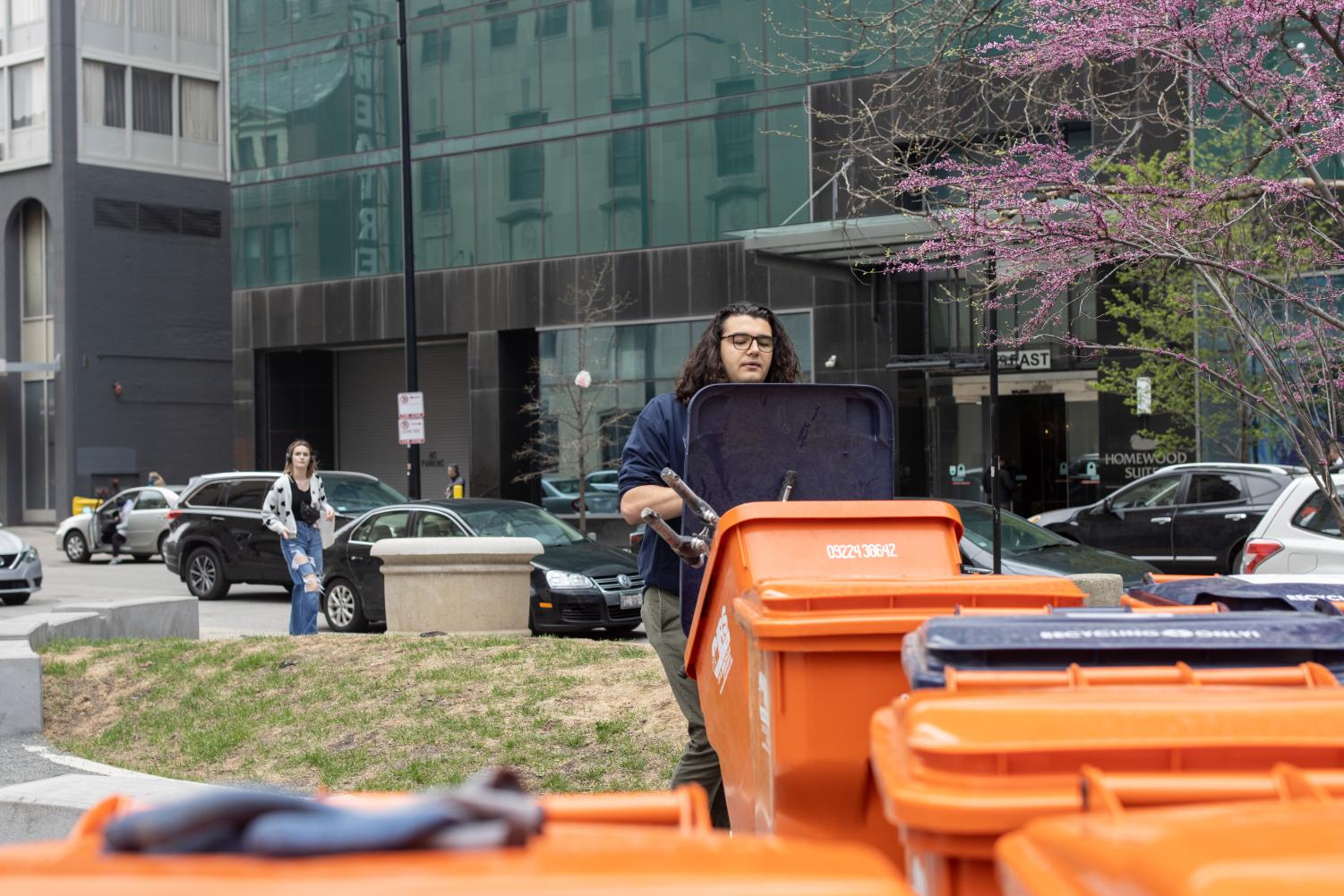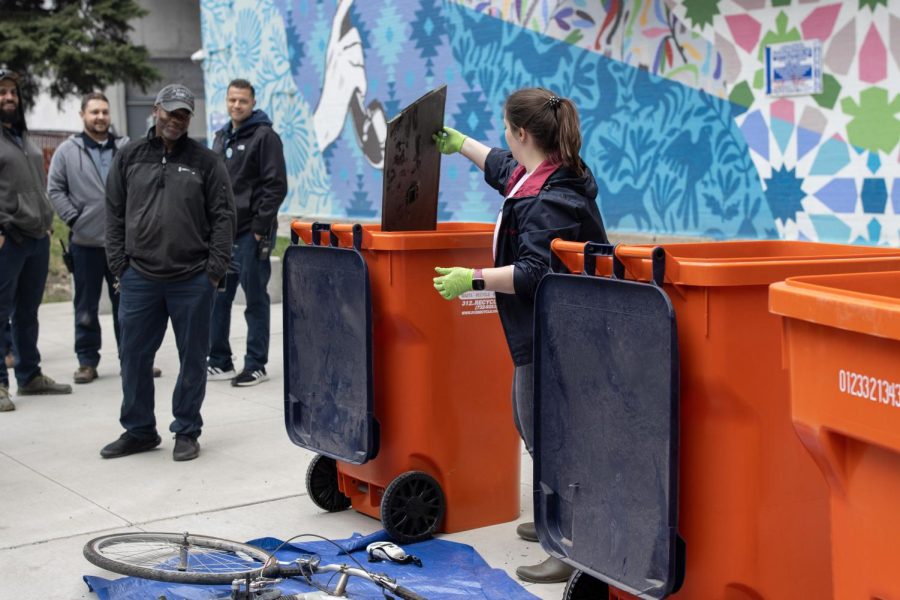College community takes part in first annual on-campus clean-up
April 22, 2023

Dozens of people, including students, administration, faculty members and staff members, removed litter around the South Loop on Friday, April 20, in honor of Earth Day. The effort, which was sponsored by the Student Government Association Environmental Committee and the Facilities and Construction Department, was Columbia’s first annual clean-up.
Earth Day is an annual celebration that marks the birth of the environmental movement that began in 1970 — sparked by Rachel Carson’s “Silent Spring,” a book that documented environmental harm caused by pesticides.
As of the end of 2022, Chicago was ranked 10th for American cities with the worst littering problems, with 9.4% of households having litter on their block.
Staring around 10:30 a.m., the participants picked up litter and trash along South Wabash Avenue, East Roosevelt Road and East Ida B. Wells Drive.
The participants were split into seven groups, each being responsible for a block to clean up.
SGA President Tyler Harding said what he noticed most was the number of small litter materials, mentioning plastic, zip ties and “a lot of cigarette butts.”
Cigarette butts continue to be the single most littered item in the United States, according to the 2020 National Litter Study, followed by plastic films for general use and food packaging.
“It’s really the small things that can kind of get hidden away, especially when street sweepers come in and there’s not people going in by hand and picking everything up,” said Harding, leader of the SGA Environmental Committee.
After the clean-up, the group walked to the garden by Columbia’s Music Center Concert Hall, where they weighed and sorted the trash. This will be shipped to Independent Recycling.
Harding said events like these are important; he hopes this will be an annual event.
“The Columbia community is invested in the South Loop. I think it’s important that every year we pick up trash to show that we take pride in the space Columbia occupies,” Harding said.
Since 2012, Chicago has not had a Department of Environment — this was cut by former Mayor Rahm Emanuel.
Increases in littering and illegal dumping contribute to air pollution, land pollution and ocean pollution.
Other litter-free organizations are leading city-wide clean-up initiatives, including Friends of the Chicago River, Chicago Parks Foundation Pitch In for the Parks, Cleanup Club Chicago, Forest Preserves of Cook County Litter Cleanups and Shedd Aquarium Action Days.
Anne Mueggenborg, a sophomore creative writing major, said they heard about the event from a classmate in their “Culture of Climate Change” course, which participated as a class.
“I care a lot about being outside and engaging with the environment around me… it’s nice to have spaces that are clean that aren’t contributing to the pollution that the city has collectively; the Earth needs it,” Mueggenborg said.
Peyton Pannell-Johnson, a junior marketing major and fashion minor who works in the Facilities Department, said she was “so grateful” to be a part of the clean-up.
“I feel like it’s such a big part of our generation and instead of just speaking about it and posting about it, actually doing it and encouraging others to do it really just brings more to the table. Voicing it is important but taking action is also important,” she said.
Ann Kalayil, associate vice president of Facilities and Construction, said they saw people coming into the Hilton that were giving them thumbs up during the clean-up.
“They’re seeing us, that we’re with Columbia, and giving us thumbs up and saying this is great, you guys really care about your neighborhood and the broader community,” they said.
Kalayil said this event should not be just one day.
“We have to continuously do things to reduce our carbon footprint and that’s what we’re doing in Facilities,” Kalayil said. “Today we picked up so many cigarette butts throughout [the streets], and it’s like, the world is not an ashtray, right? It’s just about being respectful of Mother Earth.
Update: On Thursday, April 27, SGA announced on Instagram that 1,600 pounds of waste — the weight of some large bears —were collected during the clean-up, including 168 pounds of recycling waste.








